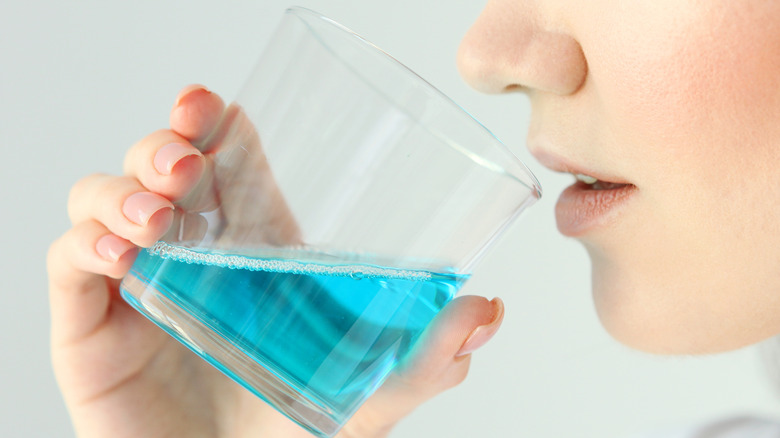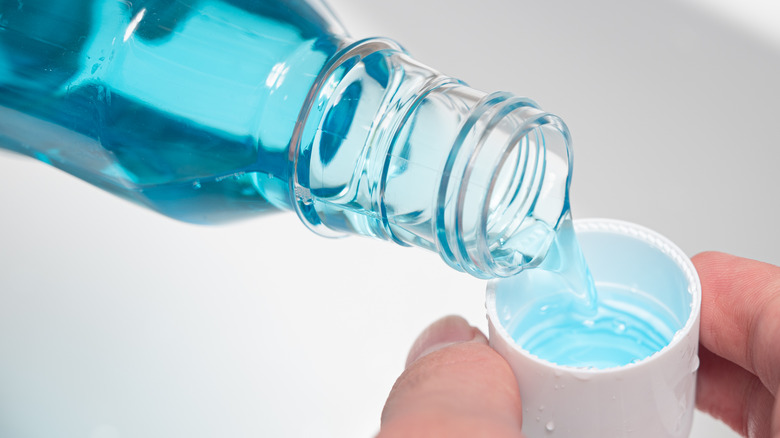Mistakes You Might Be Making With Mouthwash
Dental hygiene product commercials love to show smiling people brushing their teeth and following it up with a quick swish of mouthwash. They make it look easy, effortless, and not at all like the chore that it can sometimes feel like. While glamorizing tooth care, they're also creating inaccurate perceptions of how certain products work. Of those products, few are as misused as mouthwash.
Dentists everywhere typically inform their patients on the best way to floss, but not all of them take the time to focus on mouthwash. Ideally, everyone should floss and brush correctly. Dr. Inna Chern, a dentist based in New York City, echoed this sentiment while speaking to NBC News. Although mouthwash is great for disinfecting the mouth, she notes that it doesn't remove food debris the way flossing and brushing do.
This doesn't mean that people should skip the mouthwash, though. The product has plenty of benefits, provided it is used correctly. To do that, people need to avoid some all too familiar mistakes.
The most common mistakes
As Dr. Chern said while speaking to NBC News, mouthwash is not particularly effective at removing plaque. "After we eat, food debris gets broken down in the mouth into a compound called material alba," Dr. Chern explained. "We have an 8 to 12-hour window to remove the debris before it hardens into plaque and tartar, which require professional cleaning by your healthcare provider." It is for this reason that Dr. Chern says that replacing flossing with mouthwash is one of the most common dental hygiene mistakes.
However, the type of mouthwash a person uses may fail to provide benefits, even if they're still flossing. Dr. Euan Swan, manager of dental programs at the Canadian Dental Association, told Reader's Digest that mouthwashes can be either cosmetic or therapeutic. Cosmetic mouthwashes lessen bacteria in the mouth and reduce bad breath. Therapeutic mouthwash usually contains additional active ingredients, such as essential oils, chlorhexidine, and fluoride, which can reduce plaque and fight cavities.
Dr. Swan specifies that mouthwash should be used as directed by the manufacturer. Many types of mouthwash are effective when used for at least 30 seconds. It might be hard, but addressing this mistake can be well worth it or the benefits the right mouthwash can bring.


